Infographic: Health
More time to live
Nowadays, people are living longer – and this trend can be observed all over the world. But there is still a major life expectancy gap between the developed and developing countries. Europeans can expect to live to around 80 years of age, but Africans are likely to die two decades earlier, at just over 60.
An upward trajectory
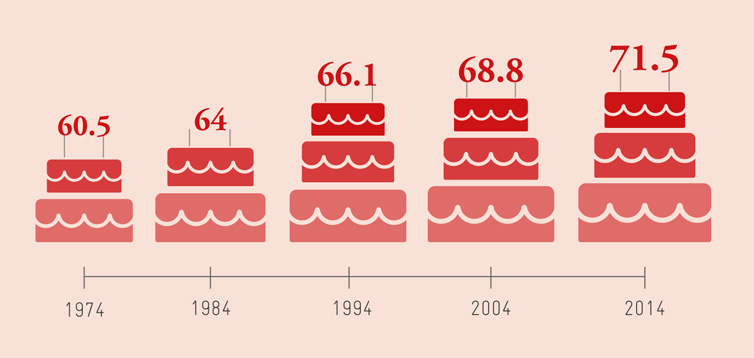
As a global average, today’s generations are likely to live significantly longer than their parents and grandparents – thanks to better health care.
A long and healthy life – or a life cut short?
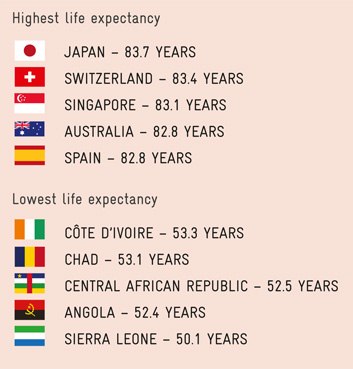
With comprehensive health care, life expectancy in Japan is the highest in the world – 30 years longer than in Sierra Leone.
The little difference
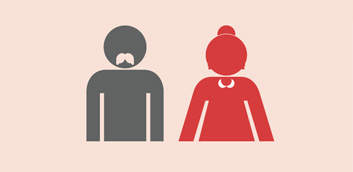
Women live longer than men. Based on global averages, they have a life expectancy of around 73 years, up from 65 years in 1981. Men can expect to live for 69 years, compared with 61 in 1981.
High and low expenditure

Total global spending for health per person per year averages 948 US dollars, ranging from 8,362 dollars in the US to just 12 dollars in Eritrea.
High rates, low rates
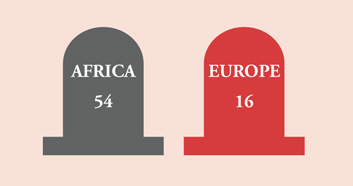
Despite major advances in medical care, women are still dying in childbirth – even in Europe, where 16 women die for every 100,000 live births.
More or less support
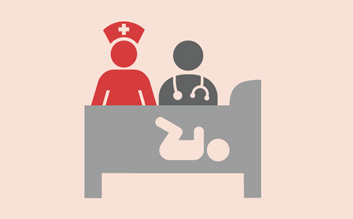
Almost three quarters of all births are attended by a skilled health worker. In Botswana, the figure is 100 per cent, compared with only 9 per cent in Somalia.
Fewer smokers

In some regions of the world, people are less likely to reach for a cigarette nowadays. In the US, smoking rates have halved since 1980.
Less polio

Thanks to intensive immunisation campaigns, the world is close to eradicating polio. It is now endemic in just three countries: Afghanistan, Pakistan and Nigeria.
Less HIV/AIDS
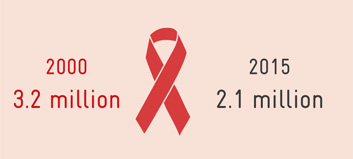
The number of new HIV infections has fallen dramatically from 3.2 million in 2000 to 2.1 million in 2015.
Fewer child deaths

Child mortality is on the decline. The number of deaths worldwide fell by almost half between 1990 and 2015.
Sources: Eurostat, ‘The Tobacco Atlas’, UNAIDS, UNICEF, World Bank, WHO
published in akzente 3/16
‘We have to reach young people’
Focus health - interview
Getting better
Essay: Health
For prosperous nations
Guest article: Health



